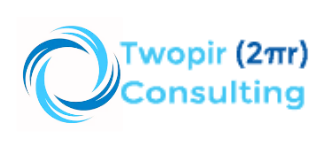Comprehensive Guide to Salesforce DevOps
Introduction
As we approach the end of 2023, Salesforce stands strong as a leading CRM platform. Despite its popularity, the platform has faced historical challenges in development and deployment. Salesforce DevOps emerges as a crucial solution, revolutionizing the software development lifecycle within the Salesforce ecosystem.
Understanding DevOps
DevOps, a fusion of development and operations, entails practices and principles aimed at aligning processes between development and IT operations. By promoting collaboration, automation, continuous integration, and monitoring, DevOps enhances efficiency and reliability in software releases.
Bringing DevOps to Salesforce
Salesforce DevOps applies these principles specifically to the Salesforce ecosystem. Given Salesforce’s critical role in numerous businesses, efficient development and deployment are paramount to avoiding disruptions and delays. Salesforce DevOps ensures Admins and Developers can effect changes and deploy updates seamlessly, minimizing disruptions and addressing issues proactively.Importance of Salesforce DevOps
Salesforce DevOps offers numerous benefits:- Accelerated Time-to-Market: Streamlining processes results in faster, more efficient releases.
- Enhanced Collaboration: Improved communication between teams ensures smoother workflows.
- Error Reduction: Automation minimizes errors, enhancing the reliability of software releases.
- Continuous Improvement: Ongoing monitoring and feedback enable constant enhancements.
- Cost Efficiency: Efficient processes contribute to overall cost savings.
- Security and Compliance: Adherence to security standards safeguards data and ensures compliance.
Principles and Implementation
Salesforce DevOps principles are practical guidelines for achieving efficient, collaborative, and automated development and deployment. Key principles include better team collaboration, version control, continuous integration/deployment, testing automation, and monitoring and feedback.Salesforce DevOps Tools
Diverse tools enhance development and deployment processes in Salesforce DevOps:Development and Coding Tools
- Salesforce CLI (Command Line Interface)
- Salesforce DX (Developer Experience)
- Integrated Development Environments (IDEs)
Version Control and Collaboration Tools
- Git
- GitHub and GitLab
Automation and CI/CD Tools
- Jenkins
- Travis CI and CircleCI
- Copado and Gearset
Testing and Quality Assurance Tools
- Selenium
- Apex Unit Testing Framework
Monitoring and Feedback Tools
- Salesforce Health Check
- Salesforce Event Monitoring
Environment Management Tools
- Salesforce Sandboxes
- Salesforce Scratch Orgs
Security and Compliance Tools
- Salesforce Shield
- Third-Party Security Scanners
Salesforce DevOps Best Practices
To fully harness the potential of Salesforce DevOps, consider the following best practices:<d- Smart Environment Strategy: Thoughtful planning for controlled development, testing, and production environments.
- Your Branching Strategy: A structured approach to managing changes and avoiding conflicts.
- Build or Buy Dilemma: Strategic decisions on whether to build or buy solutions for specific needs.
- Release Management: Efficient planning and execution of releases for timely deployment.
- Fast-Track Your Development: Leveraging tools and practices to accelerate development processes.
Contact Us
We would love to hear from you
Please feel free to send us a message via the form
